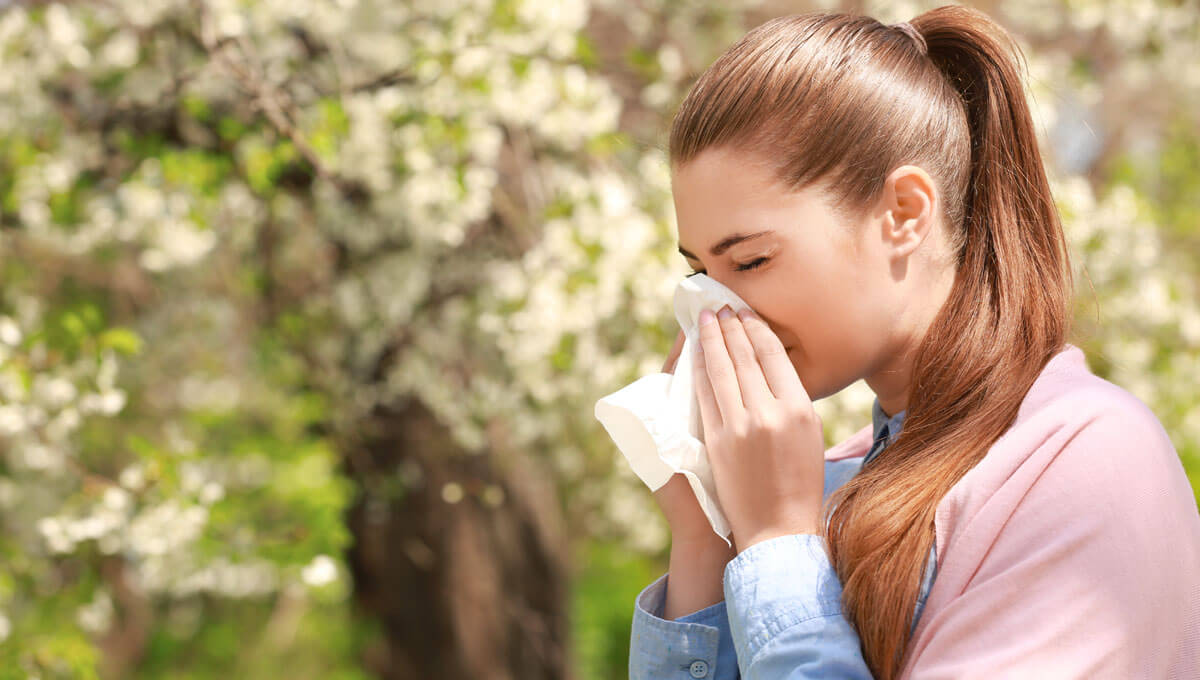
Ways to drink more water

A change in weather conditions can be the cause of allergic reactions. The problem of spring allergies affects hundreds of people every year. How do you cope with the uncomfortable consequences of an allergy? Which allergens are characteristic of springtime?
Spring is above all a time when nature awakens to life after a winter's sleep. The change of season is inseparably connected with the exuberant bloom of vegetation. Many trees, grasses, shrubs and flowers start pollenising at this time. One of the most common ways of transporting and spreading them is, of course, the wind, which makes its presence felt much more frequently with the arrival of spring. Most spring allergies are triggered by the pollen-rich air. Hazel, alder, birch, poplar, ash and oak - their bloom is the most frequent cause of allergic reactions.
However, spring allergies can be caused by a number of other factors in the air:
During spring, the biggest problem is inhalatory allergies. Spring allergens enter the body through the nose or mouth with the air. It is only a matter of time before the first symptoms of contact with the allergen occur. Allergic persons complain of a troublesome cough and rhinitis, an excessively blocked nose, exaggerated watering of the eyes, dermal changes (e.g. reddening of the skin, rashes) or the development of conjunctivitis. Most of these symptoms are caused by a large increase in histamine levels - most allergy medication is designed to reduce histamine secretion.
With the right knowledge of allergens, you can start trying to alleviate the symptoms of spring allergies. The most effective way is, of course, to contact a specialist and have a professional desensitisation carried out. The doctor will certainly select the appropriate measures and suggest the most effective ways to give your body the necessary support during this time.
However, it is worth remembering that you can manage allergic reactions without having to visit an allergologist. With a few simple measures, you can greatly reduce the chance of coming into contact with allergens, thus reducing the chance of an adverse histamine reaction:
It is extremely helpful to keep an allergy diary to record the situations and factors that lead to exacerbated allergic reactions, as well as to write down tips for reducing the symptoms that occur.
The information below is required for social login
Sign In
Create New Account